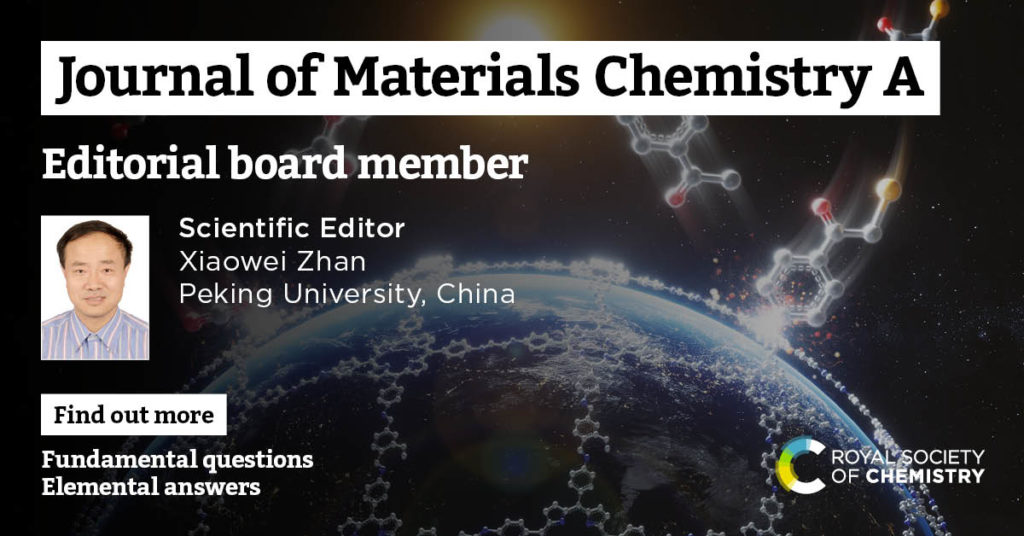Interview with Professor Xiaowei Zhan (Peking University, China)
Scientific Editor, Journal of Materials Chemistry A
What aspect of your research are you most excited about at the moment?
A: My group focuses on organic photovoltaics (OPV). The active layer in OPV device consists of electron donor and electron acceptor. Although fullerenes were prevailing acceptor materials in OPV from 1995 to 2015, I doubted if this choice was correct considering their fatal flaws such as weak visible light absorption. In 2006 my group started the non-fullerene OPV research. In 2015 we invented the milestone molecule ITIC and pioneered the concept of fused ring electron acceptor (FREA). Now around 350 research groups from >20 countries have utilized the FREA to fabricate OPV devices with the champion efficiency of >20%. The FREA has subverted previously predominant fullerenes, and is inaugurating a new era of the OPV field.
What do you find most challenging about your research?
A: Since efficiencies over 20% have been achieved for FREA-based OPV devices, the next challenge should be how to advance the field from lab to fab. Based on the unique features of OPV such as light weight, flexibility and semi-transparency, integration of OPV into special scenarios can make a breakthrough in commercialization of OPV. Through concerted efforts, practical application of OPV can be expected in near future.
What does it mean to you to have been appointed as Scientific Editor for Journal of Materials Chemistry A?
A: It is my great honor and pleasure to serve the materials chemistry community in the field of renewable energy especially organic photovoltaics.
How do you feel about Journal of Materials Chemistry A as a place to publish research?
A: Journal of Materials Chemistry A is well recognized as one of renowned journals in chemistry and materials science, especially as one of the most important journals in the field of organic photovoltaics. I have co-authored 36 papers in this journal.
What is one piece of career-related advice or wisdom that you would like to share with early career scientists?
A: I think important personalities for scientific research include curiosity, creativity, uniqueness, devotion and persistence.











